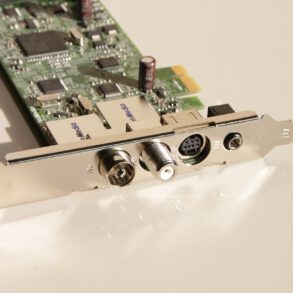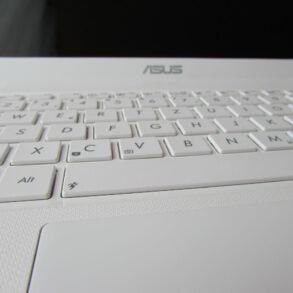The Intel Centrino Advanced-N 6235 is a 300Mbps, dual-band Wi-Fi card that includes Bluetooth 4.0. Ed Rhee/CNET
Memory and storage are probably the two most commonly upgraded components on laptop computers. They’re easy to upgrade and have an immediate impact on system performance. Wi-Fi cards are upgraded less frequently, but upgrading them can have a dramatic impact on performance as well, with greater range and faster throughput.
In this tutorial, we’re going to upgrade the Intel Centrino Wireless-N 2230 inside a, with an Intel Centrino Advanced-N 6235. The Intel 2230 card is a good midrange card, but it lacks dual-band support, so we’re going to replace it with the Intel 6235, which supports both the 2.4GHz and 5GHz bands.
Choosing your new Wi-Fi card
There are a few things to consider when choosing your new Wi-Fi card. The first thing you should find out is if your laptop manufacturer uses a whitelist in the BIOS of your laptop. If your laptop’s BIOS uses a whitelist, it’s possible that the Wi-Fi card you want to use may not be supported. It’s not something most manufacturers advertise, so you may need to spend a little time searching the Internet to find out. If you can’t find a definitive answer, it’s up to you to decide if you want to move forward and try it anyway.
The next thing to consider is the size of the Wi-Fi card. Locate the old Wi-Fi card in your laptop and check the size. Most new cards are half-height cards, but some older laptops use full-height cards. If your laptop isn’t compatible with the newer half-height cards, you can try using a bracket adapter to make it fit.
Full-height card on the left and half-height card on the right. Ed Rhee/CNET
Lastly, make sure that the number of antennas used in the new card matches the number in the old card. If you want to use a card that requires three antennas but you only have two, you can purchase a third antenna separately. You’ll just need to spend some time figuring out its optimal placement inside the laptop.
Upgrading your new Wi-Fi card
Before you get started with the upgrade, make sure to unplug the power adapter from your laptop and remove the battery if possible. If you have a nonremovable battery, be careful not to accidentally turn on your laptop while you’re working inside it.
Once you’re inside your laptop and looking at your old Wi-Fi card, carefully detach the antennas from the old card, making note of how they’re connected. You may want to take a photo of it for reference.
Old Wi-Fi card (Intel 2230). Click to enlarge. Ed Rhee/CNET
After the antennas have been detached, unscrew the old card from the mounting area, which should cause the card to pop up. Carefully lift it out of the slot.
Click to enlarge. Ed Rhee/CNET
Line up the contacts of your new Wi-Fi card to the slot, then carefully insert it at a slight angle. It will only fit in one way, so don’t force it if it doesn’t slide right in. Once it’s properly seated, screw it down. Next, reattach the antennas, then close up your laptop.
New Wi-Fi card (Intel 6235). Click to enlarge. Ed Rhee/CNET
When you turn your laptop back on, it’s possible that the operating system will already have the correct drivers for the card you just installed. Even if that’s the case, we recommend that you check for the latest drivers from the manufacturer’s Web site. Once you’ve confirmed that your system has the most current drivers installed, join a wireless network and enjoy your new Wi-Fi card.




